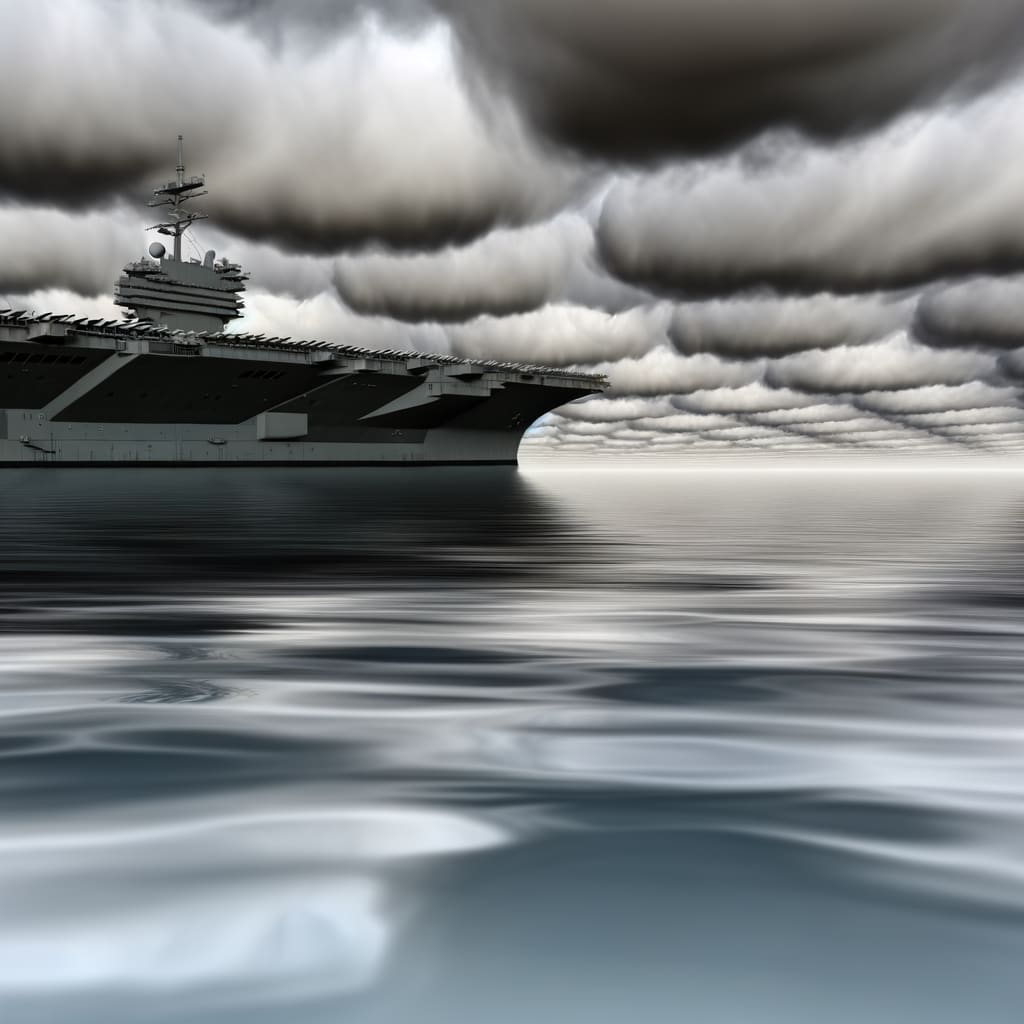China's Newest Aircraft Carrier Sails Through Taiwan Strait Amid Rising Tensions
In a recent display of military prowess, China's newest aircraft carrier, the Fujian, has navigated the Taiwan Strait for the first time, as reported by The Hindu and The Diplomat. This development comes amidst heightened tensions in the region with several countries, including the United States, Britain, Australia, and Canada, condemning China's military expansion and aggressive tactics.
Military Developments and Escalating Tensions
Clarin and the South China Morning Post reported that during its military parade, China showcased its advancements in military technology, including hypersonic missiles capable of sinking ships, drones that function as wings, and ballistic missiles with nuclear capabilities that can reach the continental United States. The highlight of the parade was the unveiling of the DF-5C, a liquid-fuel intercontinental strategic nuclear missile, which, as stated in the official commentary, is always on alert and capable of striking anywhere in the world
.
In addition, Japan Times and Le Monde reported that China has condemned the passage of U.S. and British warships through the Taiwan Strait, describing it as trouble-making and provocation
. The Chinese military accused the western nations of undermining peace and stability in the region. Similar sentiments were expressed towards Australia and Canada by The Guardian and RT (Russia Today) as their warships navigated the sensitive Taiwan Strait.
Responses and Reactions
Amid these escalating tensions, Taiwan's Mainland Affairs Council head, Chiu Chui-cheng, warned of a 'domino effect' if China takes the island, indicating that Beijing has been actively preparing for war,
as reported by the Japan Times. The Taiwanese Ministry of Defense reported detecting 13 Chinese military vessels within a 24-hour period, according to Le Monde.
China, on the other hand, has been defensive of its military activities. A social media account affiliated with state media, cited by The Hindu, quoted an expert saying the Taiwan Strait was the normal and most reasonable and efficient route for the carrier to reach the South China Sea. Senior Colonel Shi Yi further added that Chinese troops remain on high alert at all times, resolutely safeguarding national sovereignty and security, and regional peace and stability, as reported by The Hindu.
Current Status and Implications
The current status of the situation remains tense. While China maintains its actions are in line with national security interests, other nations view them as aggressive and provocative. The transit of warships through the Taiwan Strait by western nations is perceived as a sign of defiance against China's territorial claims.
The escalating tensions and military posturing in the Taiwan Strait are indicative of the broader geopolitical conflict in the region. The situation necessitates careful diplomacy and negotiation to avoid any potential conflict.
In conclusion, the navigation of China's newest aircraft carrier through the Taiwan Strait marks a significant development in the ongoing tensions in the region. The international community will be closely monitoring the situation, as any further escalation could have far-reaching implications for global peace and stability.

